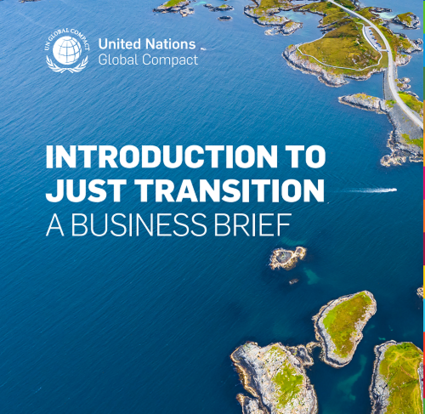Ololo Farm: Pioneering Sustainability Through Regenerative Agriculture and Community Empowerment
Start Reading

1. Company at a Glance
This case study showcases how Ololo Farm and Safari Lodge integrates sustainable farming with hospitality to address environmental challenges in Kenya. Through regenerative agriculture, circular food systems, and organic practices, the farm enhances soil health, reduces greenhouse gas emissions, and promotes biodiversity. Community engagement is central to their approach. Despite hurdles like high costs and regulatory gaps, Ololo has achieved measurable impacts, including reduced production costs and strengthened community livelihoods.
Located on the southern border of Nairobi National Park, Ololo Farm and Safari Lodge is an SME that combines sustainable farming with hospitality, offering guests an immersive experience of nature and fresh farm-to-table meals. The farm produces pasture-reared poultry and eggs and mushrooms and operates an organic Shamba (Swahili for farm).
Agriculture
Industry
2017
Founded
Kenya
Headquarters
12
Employees
2. The Challenge
Climate change and environmental degradation pose significant threats to sustainable food production in Kenya. Topsoil erosion, deforestation and unsustainable farming practices exacerbate the release of carbon into the atmosphere, negatively impacting soil health and biodiversity. Additionally, challenges such as high costs, supply chain complexities, and the absence of supportive regulatory frameworks hinder the adoption of sustainable practices. Ololo Farm faced the need to address these challenges while maintaining high standards of care for the land, animals and community.
3. The Action
To combat these challenges, Ololo Farm adopted a holistic approach centered on sustainability and regenerative agriculture. Key actions include:
Regenerative Farming Practices
Circular Food System
To combat these challenges, Ololo Farm adopted a holistic approach centered on sustainability and regenerative agriculture. Key actions include: Introduced insects such as Black Soldier Flies (BSF) in 2021 to convert organic waste into high-value agricultural inputs including organic fertilizer called frass and BSF larvae used as a more sustainable alternative animal protein. Through this system, Ololo Farm hosted 60 farmers for training and outreach to about 600 farmers in Kenya and Uganda through extension support.
Pasture-Based Systems
Used livestock to enhance soil organic matter and restore biodiversity while providing pasture-fed animal products.
Organic Fertilizer Farming:
Avoided synthetic fertilizers, focusing on organic fertilizers to ensure healthier soil and products.
Food Waste Management
Upcycled 100% of food waste into organic manure and animal protein, diverting 25 tons of waste annually and reducing CO2 emissions by 47.5 tons.
4. Impacts & Results
Operational Improvements
More than 600 farmers trained in sustainable agriculture – particularly the value of integrating insects in regenerative poultry production systems.
70% of the farmers have established insect farms, enhancing food security and livelihoods.
Engaged hundreds of children and community members in sustainability initiatives
Environmental Impact
Rebuilt soil biodiversity and improved carbon sequestration.
Diverted more than 100 tons of ‘food waste’ from landfills, contributing to reduced greenhouse gas emissions
Community Benefits
Reduced dependency on conventional feed by 20%.
Lowered production costs by 5% as of June 2023.
5. Key Lessons Learned
Innovative Practices
Adopting nature-based solutions can significantly enhance circular economies and reduce waste.
Community Involvement
Engaging local stakeholders amplifies the impact of sustainability practices and fosters a culture of environmental responsibility
Commitment to Goals
Setting science-based targets and maintaining a long-term vision are critical to achieving net-zero emissions and broader sustainability objectives.
"With regenerative farming we focus on more sustainable farming methods. By mimicking nature, we can actively use livestock to rebuild the soil, while allowing the livestock to be pasture fed. We are working in sync with nature to ensure a healthier, more sustainable food system”.
George Chapman, Founder and Manager of Ololo Farm and Safari Lodge
Ololo has been a committed participant since 2020, including:
Forward Faster signatory in different targets
SDG Youth Innovator Accelerator participant
Climate Ambition Accelerator participant
SDG Ambition Accelerator participant
Part of SPARK Community
Recommended UN Global Compact resources to support your journey:


